Skill Improved

Can playing multiple sports help in skill development ?
Participation in multiple sports can enhance overall athleticism and skill development by improving physical attributes, reducing injury risk, developing transferable skills, and promoting mental toughness. It also offers social benefits such as expanded networks and increased opportunities for exposure. While specialization has its advantages, playing multiple sports can help athletes become well-rounded competitors.

How important is rest and recovery in skill enhancement ?
The text discusses the importance of rest and recovery in the process of skill enhancement. It highlights the cognitive and physical benefits of taking breaks, such as improved mental clarity, memory consolidation, muscle recovery, and injury prevention. The practical implications include avoiding burnout, enhancing performance, and strategies for incorporating rest into practice schedules. Overall, the text emphasizes that rest is a crucial component of long-term skill development and should be given equal consideration alongside deliberate practice and training regimens.

How can team sports help in individual skill development ?
Team sports contribute significantly to individual skill development by improving communication skills, enhancing leadership abilities, increasing self-confidence, bettering time management, improving social skills, promoting physical fitness and coordination, providing opportunities to learn from mistakes, and fostering adaptability.

Is speed reading a natural ability or a skill that can be learned ?
Speed reading is a topic of interest for many individuals who wish to improve their reading efficiency and comprehension. The question arises whether speed reading is a natural ability that some people possess, or if it is a skill that can be learned and developed through practice and training. While there may be some individuals who possess a natural ability for speed reading, it is generally accepted that speed reading is a skill that can be learned and improved upon through practice and training. By employing specific techniques and strategies, anyone can enhance their reading speed and comprehension, ultimately increasing their productivity and knowledge acquisition.
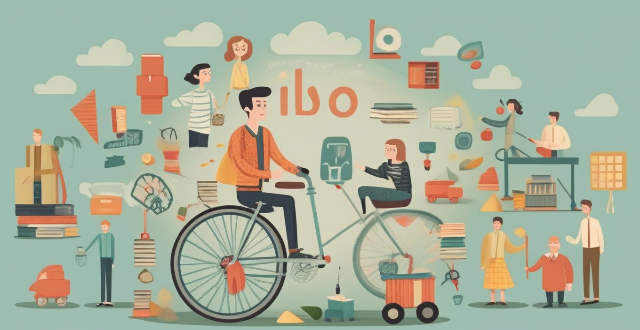
Is there a link between improved comprehension and critical thinking abilities ?
The link between improved comprehension and critical thinking abilities is explored, with a focus on how these skills are interconnected and work together to enhance cognitive abilities. The article suggests that improving one skill can lead to improvements in the other, creating a virtuous cycle of cognitive development. Techniques for improving both skills are also discussed, including reading widely, engaging in debates, and practicing active listening.

Can nutrition affect an athlete's skill level ?
Nutrition is vital for athletes' overall well-being and performance, including skill enhancement, recovery, and injury prevention. It affects cognitive function, physical performance, and recovery, ultimately influencing an athlete's skill level. A balanced diet with proper nutrients can help athletes reach their full potential and succeed in their sports.

How do I choose a tennis training camp that fits my skill level ?
Choosing a tennis training camp that fits your skill level can significantly improve your game. Here are some tips on how to select the right camp: 1. Assess your current skill level by considering your experience, strengths and weaknesses, and fitness level. 2. Research different camps that offer programs specifically designed for your skill level using online directories, social media groups, and reviews from previous attendees. 3. Check the coaches' qualifications and experience, including their credentials, coaching philosophy, and track record of working with players at your skill level. 4. Consider the quality of the camp's facilities and amenities, such as well-maintained courts, access to equipment, and onsite amenities like locker rooms and dining areas. 5. Evaluate the camp's reputation and success rate by reading reviews, asking for referrals, and contacting the camp directly to learn more about their success stories.
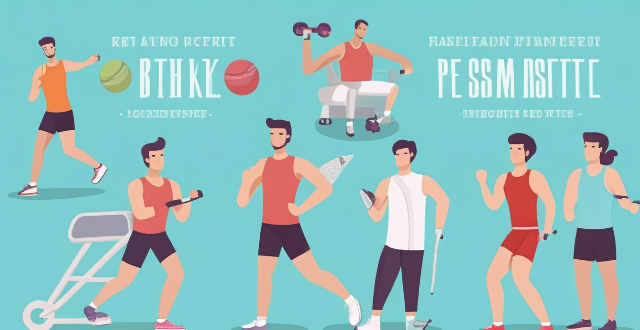
Is there a connection between sports and improved mental well-being ?
The relationship between sports and improved mental well-being is evident in numerous studies, indicating that engaging in physical activities significantly contributes to an individual's overall psychological well-being. This connection can be analyzed from various angles, including physiological responses, social interactions, personal development, and the role of subjective class identity and health. Physiological responses to sports include endorphin release and stress reduction, while social interactions provide opportunities for teamwork and belongingness. Personal development through sports enhances self-esteem and discipline. The mediating roles of class identity and health also play a part in this relationship. Overall, sports participation positively affects individuals' subjective well-being through various mechanisms, enhancing their mental health and overall quality of life.
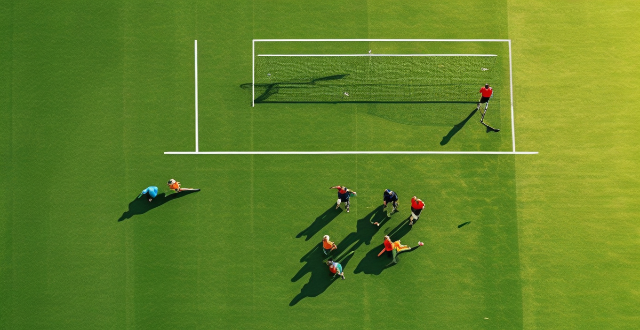
To what extent do technological advancements (like improved equipment and analytics) influence sports performance at the highest level ?
Technology has significantly impacted sports performance through improved equipment, advanced analytics, and enhanced training methods. Lightweight materials, aerodynamic designs, and customized gear have boosted athlete performance. Safety measures and recovery tools have minimized injuries and accelerated healing. Smart devices and simulation tools aid efficient training. Advanced analytics aid in performance tracking, strategy development, and team management. However, these advancements may create disparities between teams with unequal access to technology. They also raise debates on skill versus technology's role in sports. Despite concerns, technology enhances fan engagement through interactive experiences and data visualization. As technology advances, governing bodies must ensure equitable access and maintain fair competition while embracing its role in shaping the future of sports.

What are the benefits of critical thinking training ?
Critical thinking training offers numerous benefits, including improved decision-making skills, enhanced problem-solving abilities, increased self-awareness, improved communication skills, and boosted creativity. By learning how to analyze information and evaluate evidence in a clear, rational, and objective manner, individuals can make more informed decisions, find creative solutions to difficult challenges, build stronger relationships, and generate new ideas. Overall, critical thinking training can help individuals succeed in both personal and professional settings and reach their full potential.

Are there any age restrictions for attending a tennis training camp ?
Attending a tennis training camp can have age restrictions based on physical maturity, safety concerns, and skill level. Typically, the minimum age requirement is between 8-10 years old, but some camps may accept younger children with parental supervision or permission. There are usually no maximum age limits, as adult players often attend training camps to improve their skills or prepare for competitions. Attending a tennis training camp can provide numerous benefits, including improved skill level, increased fitness, and networking opportunities.

What are the benefits of participating in competitive sports ?
Competitive sports offer numerous benefits, including improvedCompetitive sports offer numerous benefits, including improved-being, social skills, including improved physical health, mental well-being, social skills, educational achievements, career opportunities, personal development, and the establishment of lifelong healthy habits.
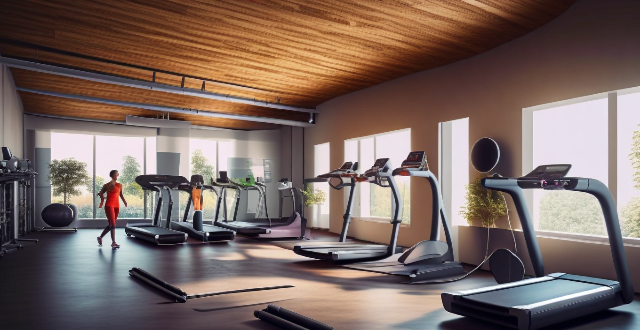
What are the latest advancements in sportswear technology ?
The latest advancements in sportswear technology include smart garments with sensors for real-time performance feedback, improved materials for comfort and moisture management, customized footwear for personalized fit and support, and augmented reality training for interactive and engaging learning experiences. These innovations are enhancing athletes' efficiency, comfort, and overall experience, helping them achieve their goals faster and more effectively.

What are the benefits of Smart Grid Technology ?
Smart grid technology offers numerous benefits including improved reliability, enhanced efficiency, increased sustainability, greater transparency and control for consumers, and improved security.
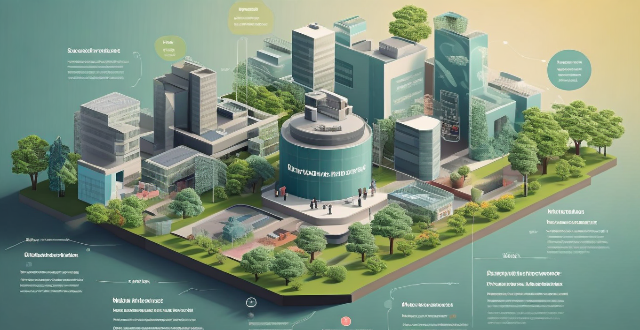
What are the benefits of having a well-structured knowledge framework ?
A well-structured knowledge framework offers benefits such as improved learning efficiency, enhanced understanding, increased application capabilities, and improved communication skills. By organizing information systematically, individuals can maximize their potential for success in various aspects of life.
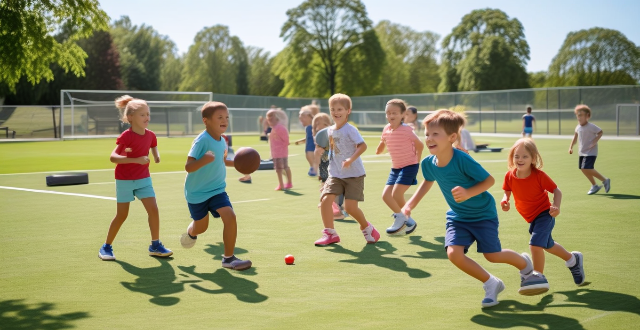
What are the potential risks associated with children specializing in one sport too early ?
Specializing in a single sport at an early age can have both advantages and disadvantages for children. While it may lead to improved skill development and potential for higher-level competition, there are also several potential risks associated with this approach. These include physical risks such as overuse injuries, burnout, and lack of cross-training benefits; psychological risks like pressure and stress, narrowed social experiences, and fear of failure; developmental risks including delayed skill development, loss of childhood, and reduced adaptability; social risks such as isolation, peer pressure, and limited life skills; and academic risks such as time management challenges and prioritization issues. To mitigate these risks, experts often recommend encouraging diverse participation in sports until late adolescence, ensuring a balanced approach between sports, school, and leisure time, providing access to mental health resources for athletes dealing with stress and pressure, and involving parents in a supportive but not pushy way.
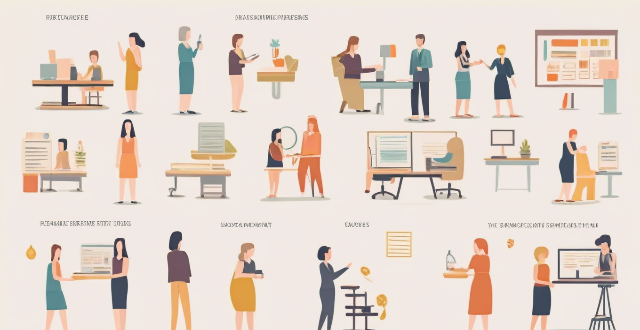
How can women improve their relationship management skills ?
Managing relationships is a crucial life skill that helps individuals navigate personal and professional connections effectively. For women, enhancing relationship management skills can lead to improved communication, deeper connections, and increased satisfaction in various aspects of life. The key areas to focus on include empathy and active listening, clear and honest communication, conflict resolution, boundary setting, self-awareness and personal growth, and building trust and loyalty. By practicing these skills, women can enhance their relationship management abilities and lead more fulfilling and harmonious lives.
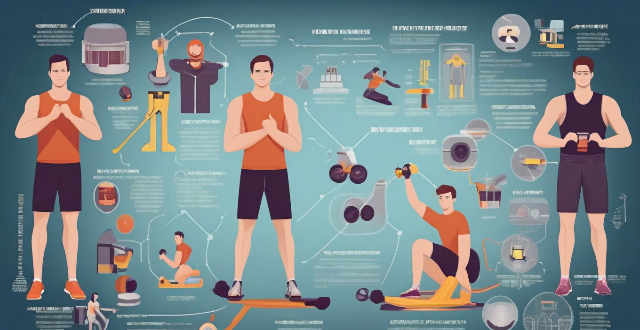
How important is visualization in building a strong sports mentality ?
Visualization, or mental imagery, is a powerful tool for athletes to enhance performance and build a strong sports mentality. It involves using imagination to simulate experiences and practice skills mentally. The science behind visualization shows that it activates similar neural networks as physical performance, aiding in motor learning and refining movement patterns. Psychologically, it boosts confidence and reduces stress. Benefits include skill refinement, strategy planning, resilience building, focus sharpening, clear goal setting, and increased motivation. To implement visualization effectively, find a quiet space, set clear intentions, use all senses, and ensure positive outcomes. Incorporating visualization into training can significantly improve an athlete's readiness for competition and overall sports psychology.

Are tennis training camps effective for children and teenagers ?
Tennis training camps can be an effective way for children and teenagers to improve their skills and develop a love for the sport, depending on factors such as quality of instruction, level of commitment, and overall environment. Benefits include skill development, learning new techniques, building confidence, and socializing with other young players.
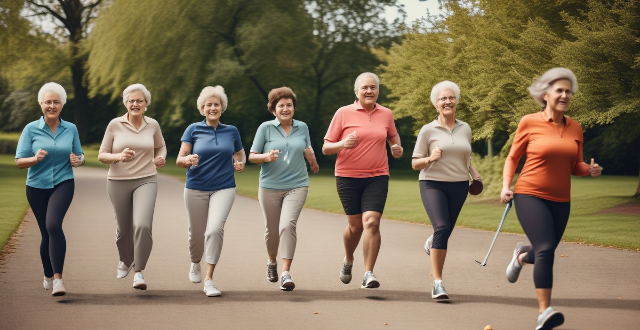
What are the benefits of strength training ?
Strength training offers numerous benefits, including improved physical strength, boosted metabolism, enhanced bone density, better body mechanics and posture, mental health advantages, improved glucose control, reduced risk of chronic diseases, and increased independence. It is crucial for overall health and well-being.

Can playing sports lead to a sense of accomplishment and pride ?
Playing sports can lead to a sense of accomplishment and pride through physical fitness, teamwork, skill development, and overcoming adversity. Achieving personal fitness goals, collaborating with teammates, mastering sport-specific skills, and bouncing back from challenges all contribute to feelings of satisfaction and self-worth. Engaging in sports is not just about recreation but also about personal growth and development.

How can sports help individuals develop leadership skills and personal growth ?
Participating in sports can help individuals develop leadership skills and foster personal growth by enhancing goal-setting, teamwork, resilience, decision-making under pressure, accountability, confidence building, discipline, physical health, emotional intelligence, and social interaction.
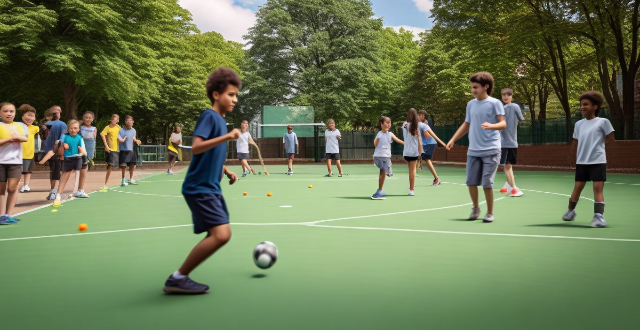
Why is it important for schools to prioritize sports education in their curriculum ?
Sports education is crucial for a student's overall development, promoting physical fitness and life skills. It improves physical health, motor skills, mental well-being, social skills, and academic performance. By prioritizing sports education, schools can create well-rounded individuals prepared for success in all aspects of life.
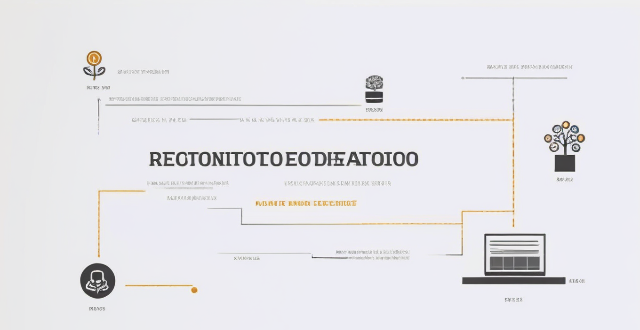
How has technology improved climate forecasting ?
Technology has revolutionized climate forecasting by improving data collection, analysis, and modeling. High-performance computing, machine learning, and AI have made predictions more accurate and reliable. Collaboration and communication among scientists have also been facilitated by technology.
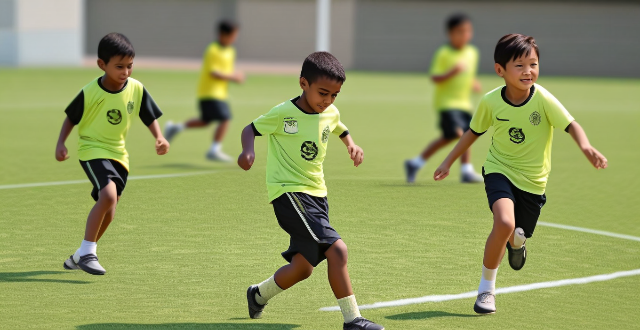
What are the benefits of team sports for child development ?
Team sports provide numerous benefits for child development, including improved physical fitness, coordination and motor skills, healthy lifestyle habits, social skills, self-esteem and confidence, discipline and responsibility, goal setting and achievement, stress relief, resilience, and empathy and compassion.

What are the benefits of taking vitamin supplements for women ?
The text discusses the benefits of taking vitamin supplements for women, including improved overall health, better skin health, reduced risk of chronic diseases, boosted immune system function, and improved mental health. It also emphasizes the importance of consulting with a healthcare professional before starting any new supplement regimen.
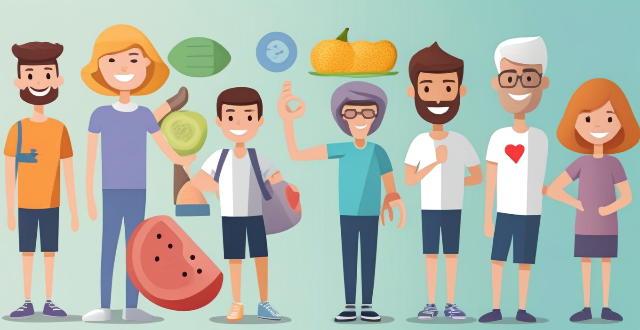
In what ways can sports education improve mental health and well-being ?
Sports education plays a crucial role in enhancing mental health and overall well-being by offering numerous benefits that contribute to the development of a healthy mind and body. It helps reduce stress, improve self-esteem, promote better sleep, provide opportunities for social interaction, teach goal setting, time management, resilience and perseverance, and develop mindfulness and focus. By promoting physical activity, social interaction, goal setting, time management, resilience, and mindfulness, sports education can help individuals develop the skills they need to lead healthy, fulfilling lives.
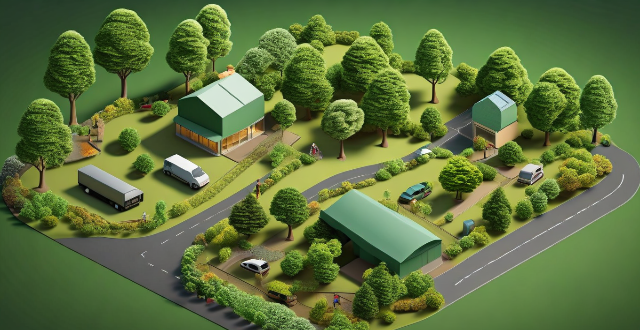
What are the benefits of using sustainable energy sources ?
Using sustainable energy sources provides environmental, economic, and social benefits. These include reduced greenhouse gas emissions, improved air quality, conservation of natural resources, protection of ecosystems, cost savings, job creation, energy independence, stable energy prices, improved public health, community resilience, education and innovation, and increased energy access. Transitioning to sustainable energy is essential for our future prosperity and survival.

Are there any specific exercises or drills for skill improvement in basketball/football/tennis, etc. ?
Topic: Skill Improvement Exercises and Drills in Basketball, Football, and Tennis Basketball: - Dribble the ball with alternating hands and in a figure 8 motion to improve ball handling skills. - Practice shooting free throws and spot shooting to enhance accuracy and consistency. - Work on lateral movement and closeout drills to improve defensive positioning and quickness. Football (Soccer): - Pass the ball against a wall and in a triangle formation to improve passing accuracy and touch. - Practice shooting at targets and receiving passes before shooting to enhance shooting accuracy and speed. - Work on marking and tackling drills to improve defensive skills and technique. Tennis: - Hit crosscourt groundstrokes and alternate forehand and backhand shots to improve accuracy and consistency. - Practice serving to targets and focusing on second serves to enhance serving reliability and placement. - Work on lateral movement and net approach drills to improve court coverage and net play.
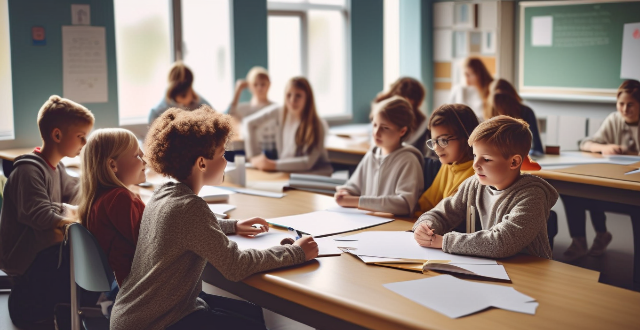
What are the benefits of fostering leadership in students from a young age ?
Fostering leadership in students from a young age has numerous benefits, including enhanced personal development, improved social skills, increased confidence, better academic performance, preparation for future roles, and a positive impact on society. Leadership training helps students develop valuable skills such as decision-making, problem-solving, time management, communication, collaboration, and empathy. These skills are beneficial in academic settings and personal lives, leading to well-liked and respected individuals. Taking on leadership roles also builds confidence and self-esteem, translating into other areas of life, including academic performance and future career prospects. Research shows that students with strong leadership qualities tend to perform better academically due to effective study habits, time management skills, and a strong work ethic. Fostering leadership prepares students for future roles in the workplace, community organizations, and political arenas, setting them up for success later in life. Developing strong leaders from a young age creates an engaged and active citizenry capable of addressing complex issues and working towards positive change.